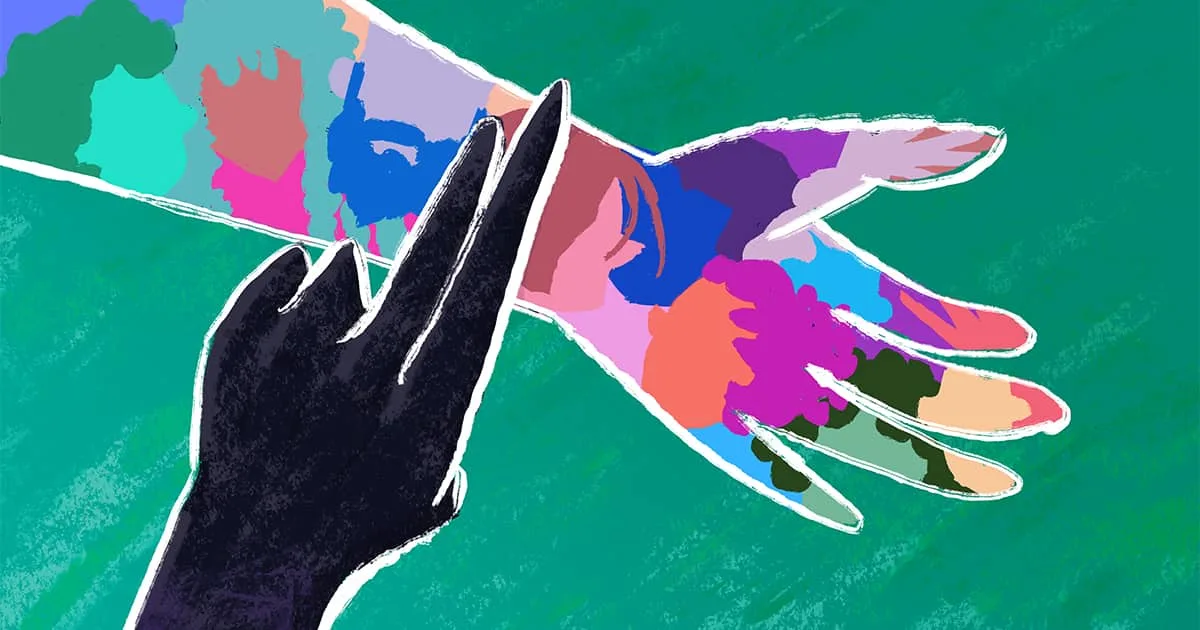Millennials have been over-analyzed and unfairly chastised for most of their adult lives. Yet, the truth is they have been dealt a bad hand in more ways than one. Unfortunately, the pandemic is bringing a whole host of new challenges to this already disadvantaged generation.
- WFH isn’t working: 61% of Millennials are currently working remotely in some capacity. Pre-pandemic, 79% of Millennials wanted to be able to work from home. Yet today 36% say remote work during quarantine has been a difficult transition, and 34% say they are getting less work done.1
- Playing double-duty: More than 50% of families are without childcare, leaving them to balance eight hours of remote work with feeding, entertaining, and educating their children. 1 in 5 working parents said that either they or their partner are considering leaving the workforce to care for their children.2
- Diverse and disadvantaged: Millennials are an extremely diverse generation, making the current state of societal and political strife that much more pointed and personal. To make matters worse, the pandemic has hurt Black and Latinos populations disproportionately both in health and finances.3
From a marketer’s perspective, there are a number of ways to connect and provide tangible value to their fast-changing lives and priorities. Below are a few attitudinal and lifestyle shifts that rise to the top.
1. The Great Reshuffling
This describes the exodus from high-priced heavily populated urban centers to towns that accommodate their new live-and-work realities. Older Millennials are driving this trend as they look to right-size their living spaces, get closer to family, or just feed their long-standing desire for homeownership. Only half of Millennials in their early thirties are currently homeowners, yet most view owning a home as the most important symbol of success, rating it higher than marriage or parenthood.4
What it means for brands:
The concept of home is being radically redefined for many Millennials. It’s about a general shift in values – from urban access, population density, and proximity to transit to privacy, space, and comfort. It also suggests a huge swath of Americans are going to be collectively embarking on a new life stage over the course of the coming months/year, and brands can tap into the excitement and optimism of new beginnings that comes with it. See Zillow’s latest commercial below that offers to be of value during a time of fresh, optimistic change.
2. Bubbles. Pods. Quaranteams.
These are all terms used to describe a recent trend where groups of two to three families agree to socialize restriction-free with each other, while continuing to maintain strict social distancing rules with those outside the pod. The idea offers a healthy compromise between a degree of normalcy and a sense of physical safety, which is especially crucial to the development and mental health of school-age children.
What it means for brands:
Through this trend, we are witnessing a shift in the concept of extended family. While we’re quite accustomed to the concept of family plans and memberships, brands may begin to expand their product offerings to include this adjusted definition of family. For example, UK travel company G Adventures has introduced flexible ‘Book Your Bubble’ tours, where guests are encouraged to book private group trips of 8 to unlock their ‘family’ promotion.
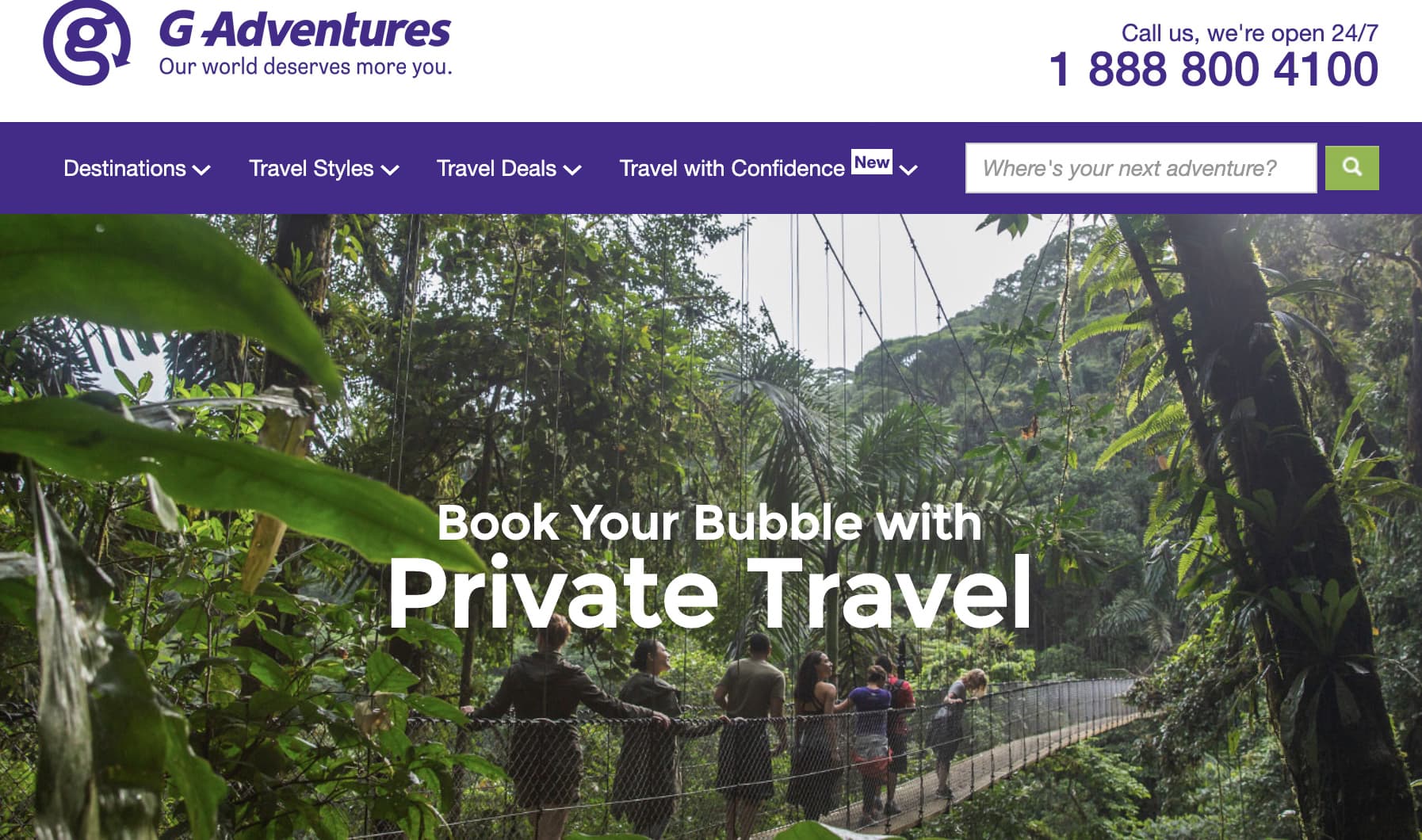
3. Reimagining the staycation
Staycationing is not a new concept. But as an audience that spent the last decade putting the experience economy into overdrive, Millennials are truly feeling the pain of being home-bound. This cohort is expected to be among the first to start venturing out as travelers post pandemic.4 But in the meantime, they’re taking advantage of an expanded definition of staycations – seeking out ways to stay entertained in and around their homebase.
What it means for brands:
Brands are recognizing and responding to this audience’s pent-up desire for adventure in clever, inventive ways. Some are tech-forward in nature (Yeti and Audi), others take a more back-to-basics approach (Walmart and IKEA) and some straddle both worlds (the wine industry).
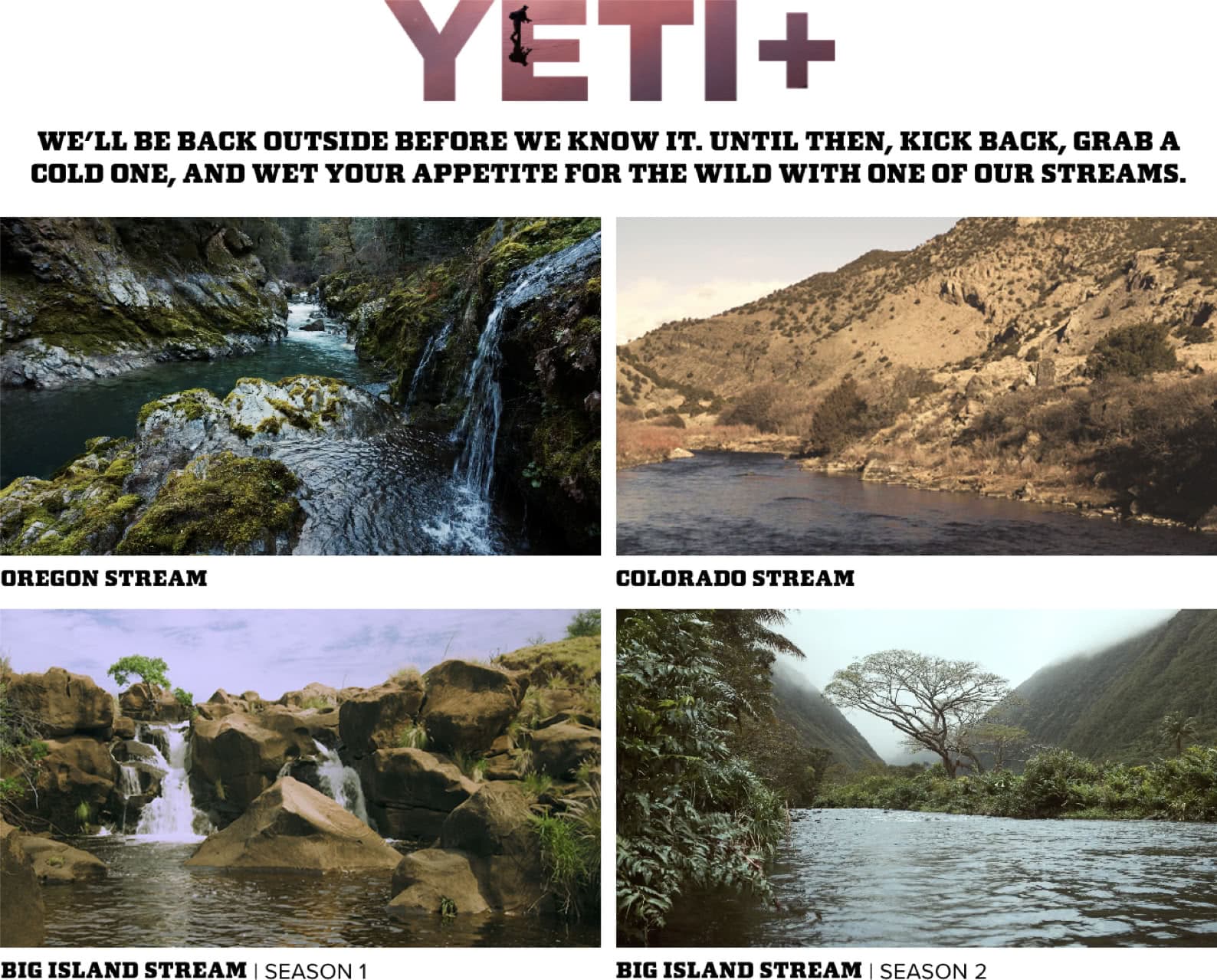
Explore the great outdoors:
Yeti launched the Yeti+ platform featuring footage of pure, unadulterated streams across North America for their nature-loving fans.
Audi Australia created a four-hour video that takes viewers across a winding road in New South Wales, to simulate the joy of an epic road trip for isolated Aussies.
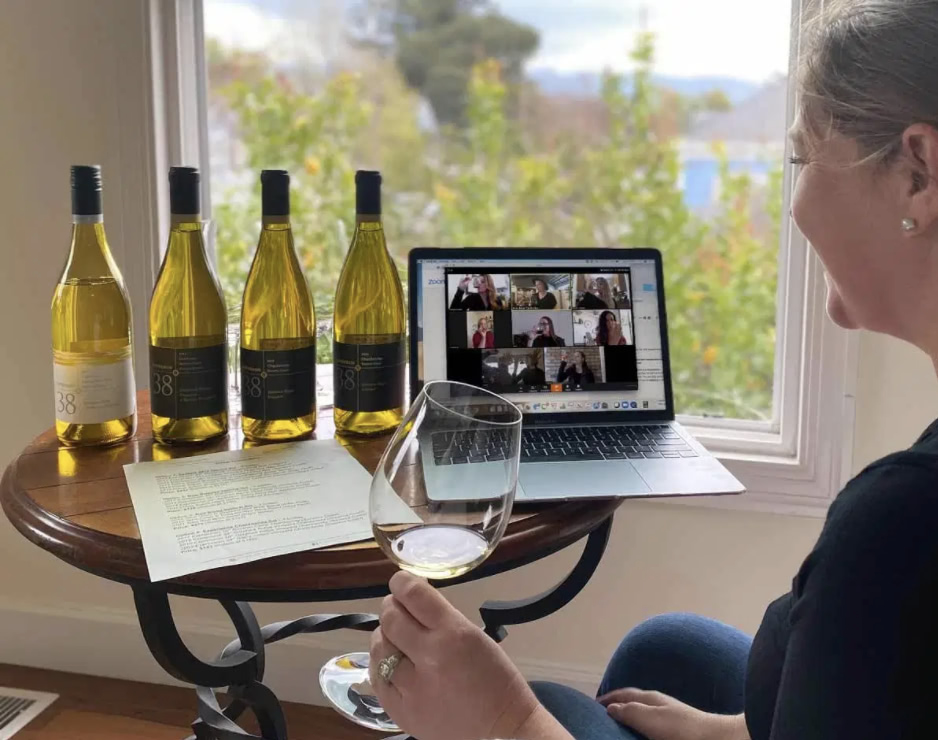
Guided Virtual Tastings:
Tech-forward wineries are offering tasting packs that can be shipped to your home or picked up curbside; coupled with free remote group tasting sessions for at-home enjoyment.
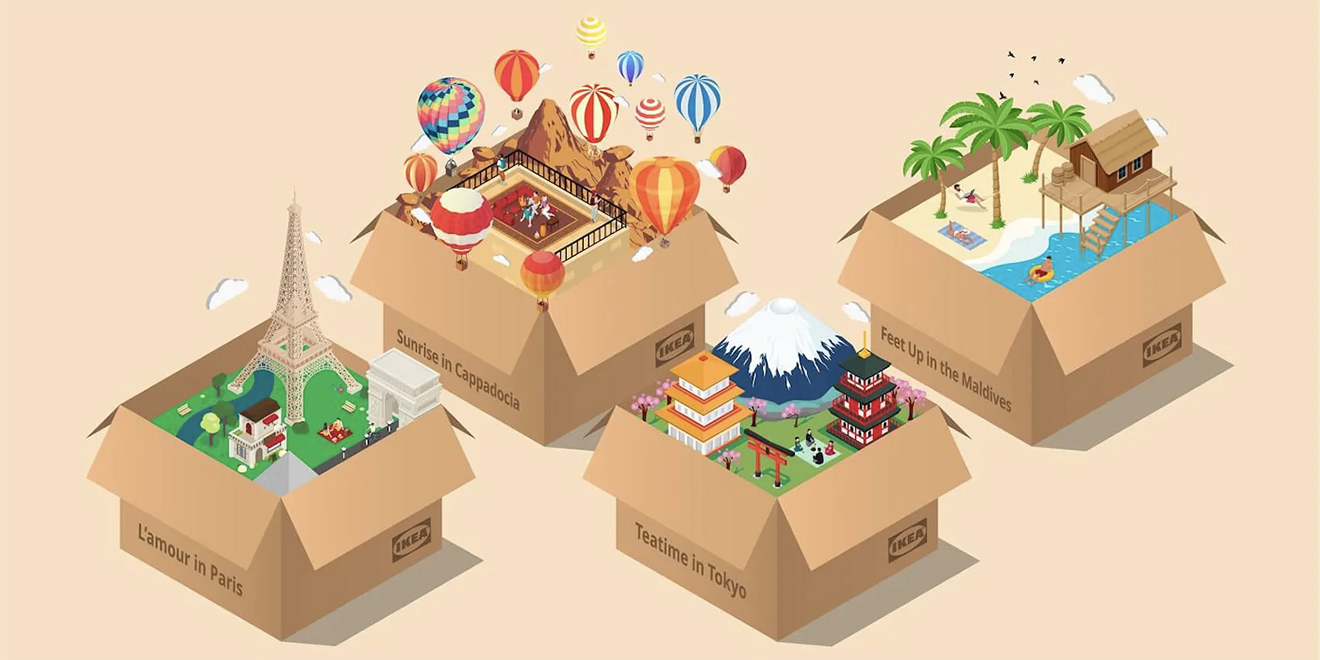
Wanderlust-themed decor:
IKEA UAE released a holiday-themed series of décor collections, dubbed Vacations in a Box. The four travel destination themed boxes contain a selection of items to transform the home into a mini-escape.
4. Converting civic attitudes into civic action
Whether it's their views on immigration, gun laws, income inequality, systemic racism or climate change, 20-and-30-year olds today are hyper engaged on topics of political and societal change. With the presidential election around the corner, there’s been a shift in focus for brands - from reflecting and participating in civic attitudes to inciting civic action by way of voter participation. After all, increasing voter turnout is both a non-partisan cause and a civic duty.
What it means for brands:
Good for democracy, good for business – 76% of people claim to be more likely to work for a company that promoted democracy; 81% were more likely to buy that company’s products or services; and more than 80% were more likely to recommend the company to their friends and family.5 Old Navy is the latest brand to play in this space, announcing that it will pay its employees to volunteer at the polls on Election Day, as well as give workers up to three hours of paid time off on Nov. 3 to cast their ballots.
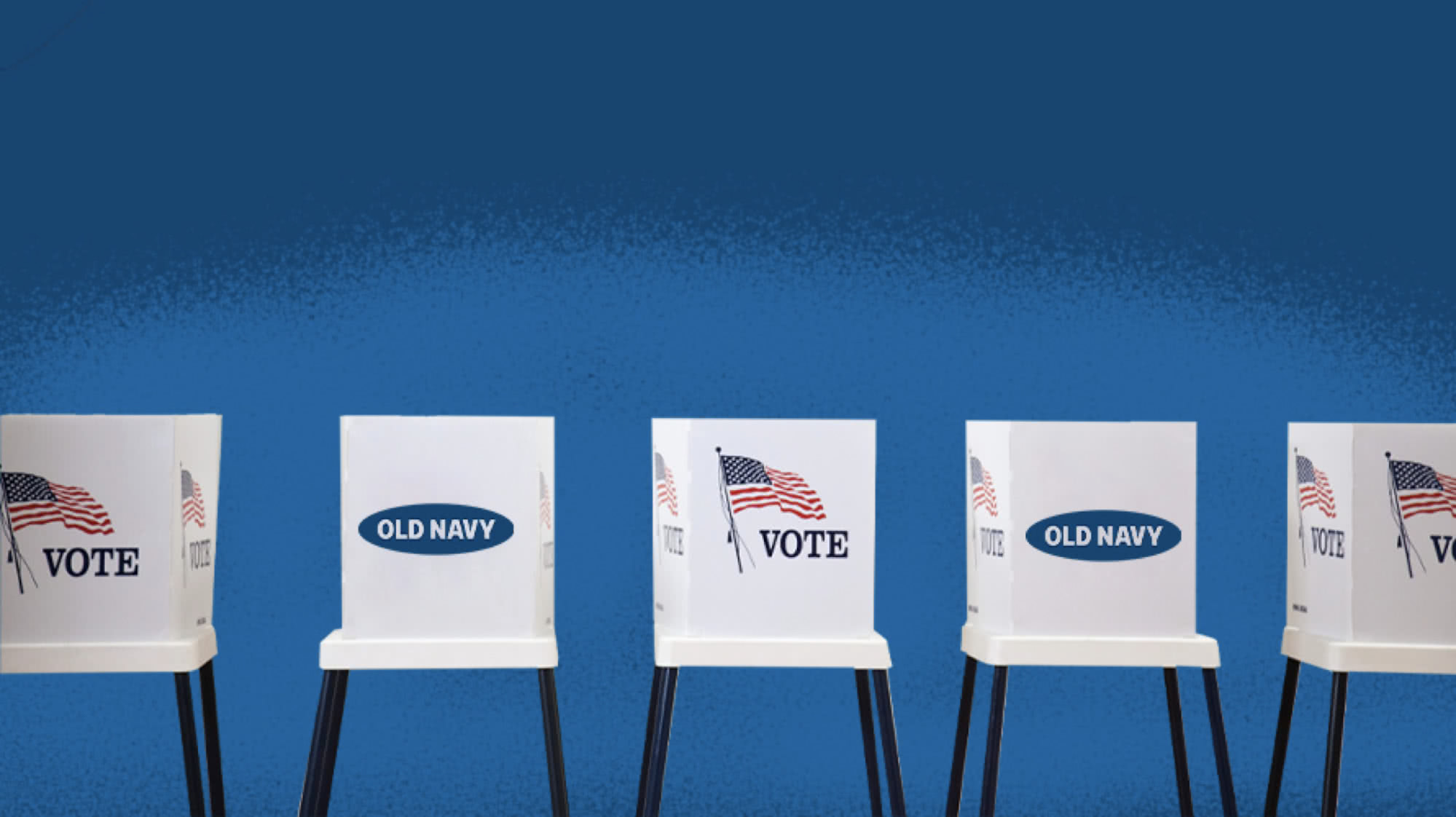
In closing:
The health and economic consequences of the pandemic have hit Millennials especially hard – their families, finances, and future plans. Yet to date, they’ve shown impressive resilience and resolve to rebuild. Much like the examples mentioned above, brands can begin to lighten the load and be of value, by offering optimism, a spirit of inventiveness, and real action in light of uncertainty.
- YPulse
- Return to Work Member Survey, Cleo
- Return to Work Member Survey, Cleo
- Mintel
- Global Strategy Group


